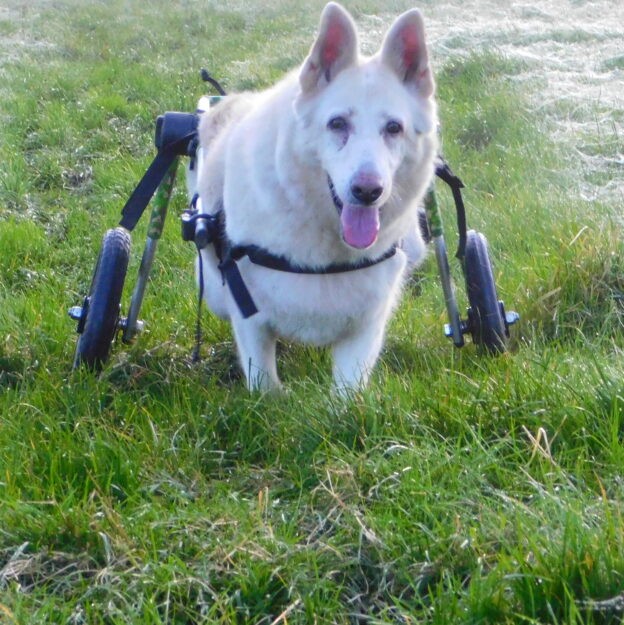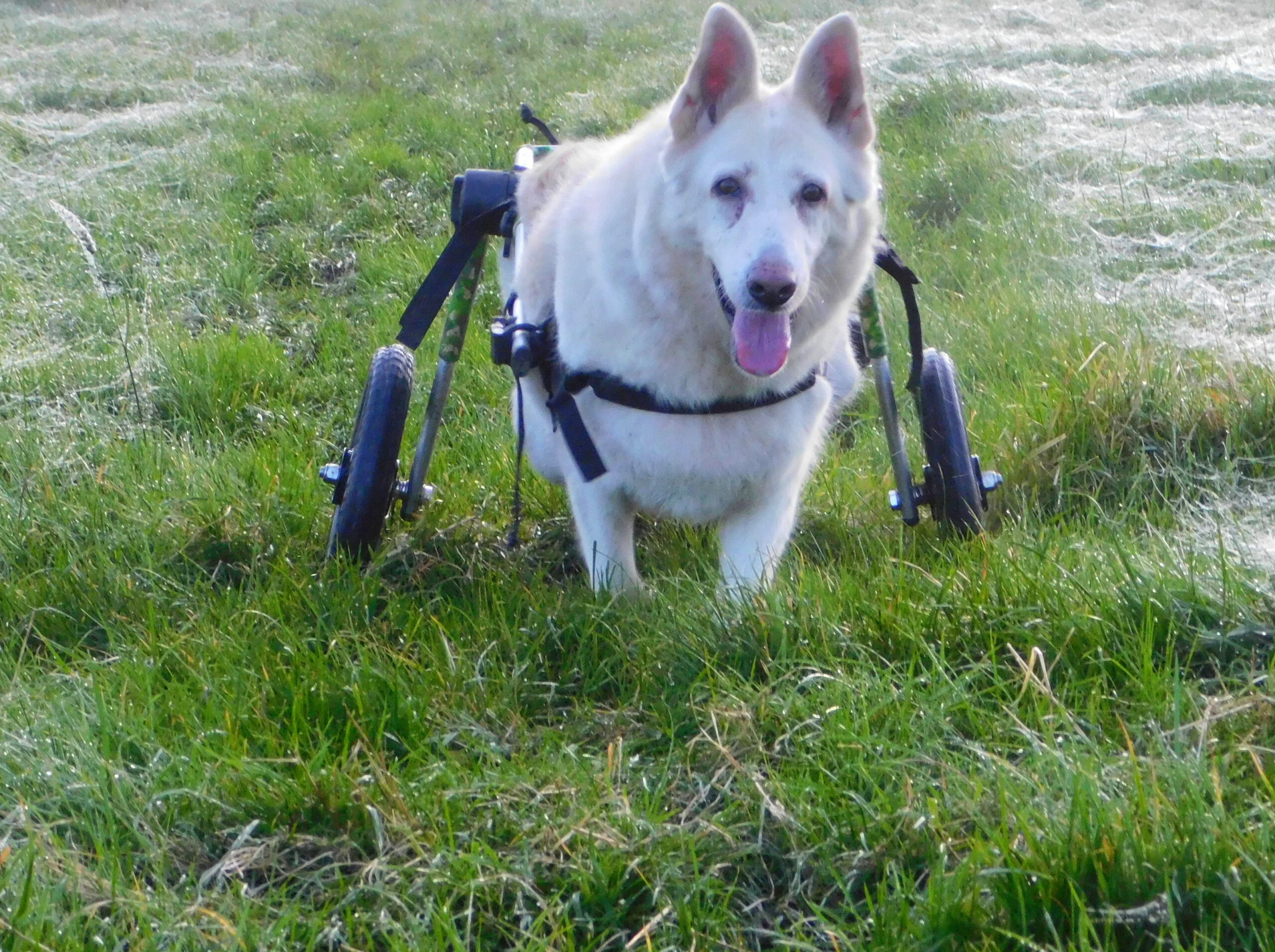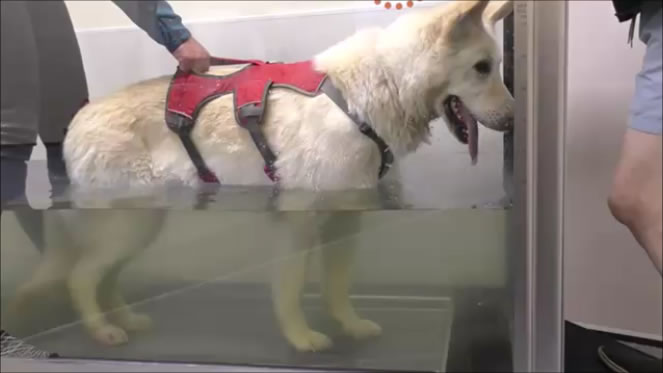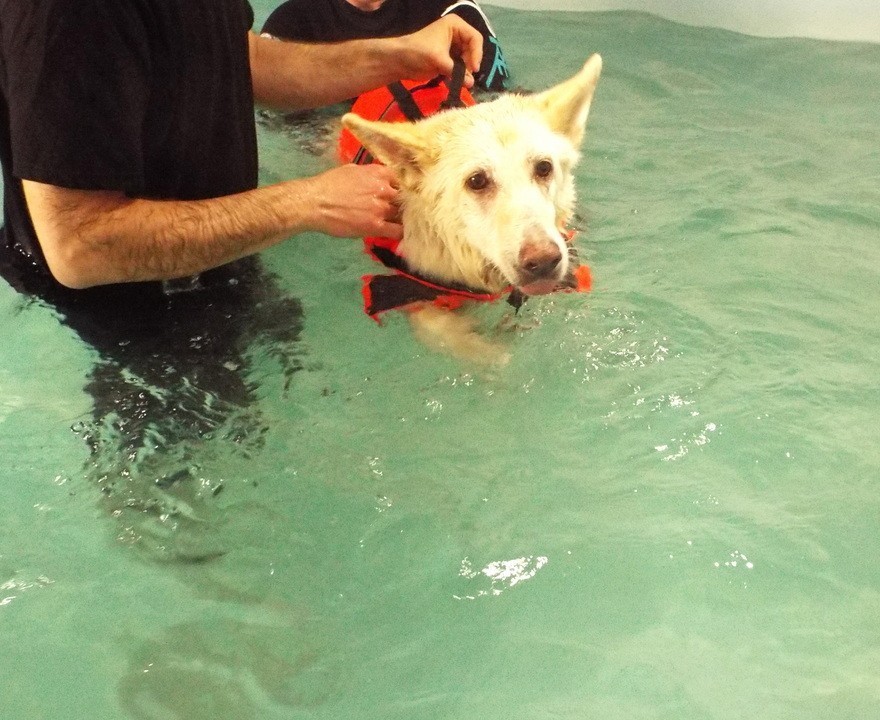Wheelchairs for pets are growing in popularity
During lockdown, we’ve been taken aback by the volume of calls we’ve received from owners considering a wheelchair for their dog.
Is it because people are spending more time with their pets and have been forced to confront the reality that they are ageing or becoming less mobile? We know we buried our heads in the sand for some time and were reluctant to admit that Daisy had a problem.
Whether like Daisy, your dog has DM (degenerative myelopathy), another problem, or just old age creeping up, there is no doubt that a dog wheelchair can bring immense benefits.
Let’s face it, when you see your pet in the early stages, still walking but starting to struggle, you may consider euthanasia. No one wants to see a beloved pet suffer, and for some, that may be the correct course of action. Also, financially, it can be a difficult choice as a dog wheelchair is a considerable investment.
Should you consider wheels?
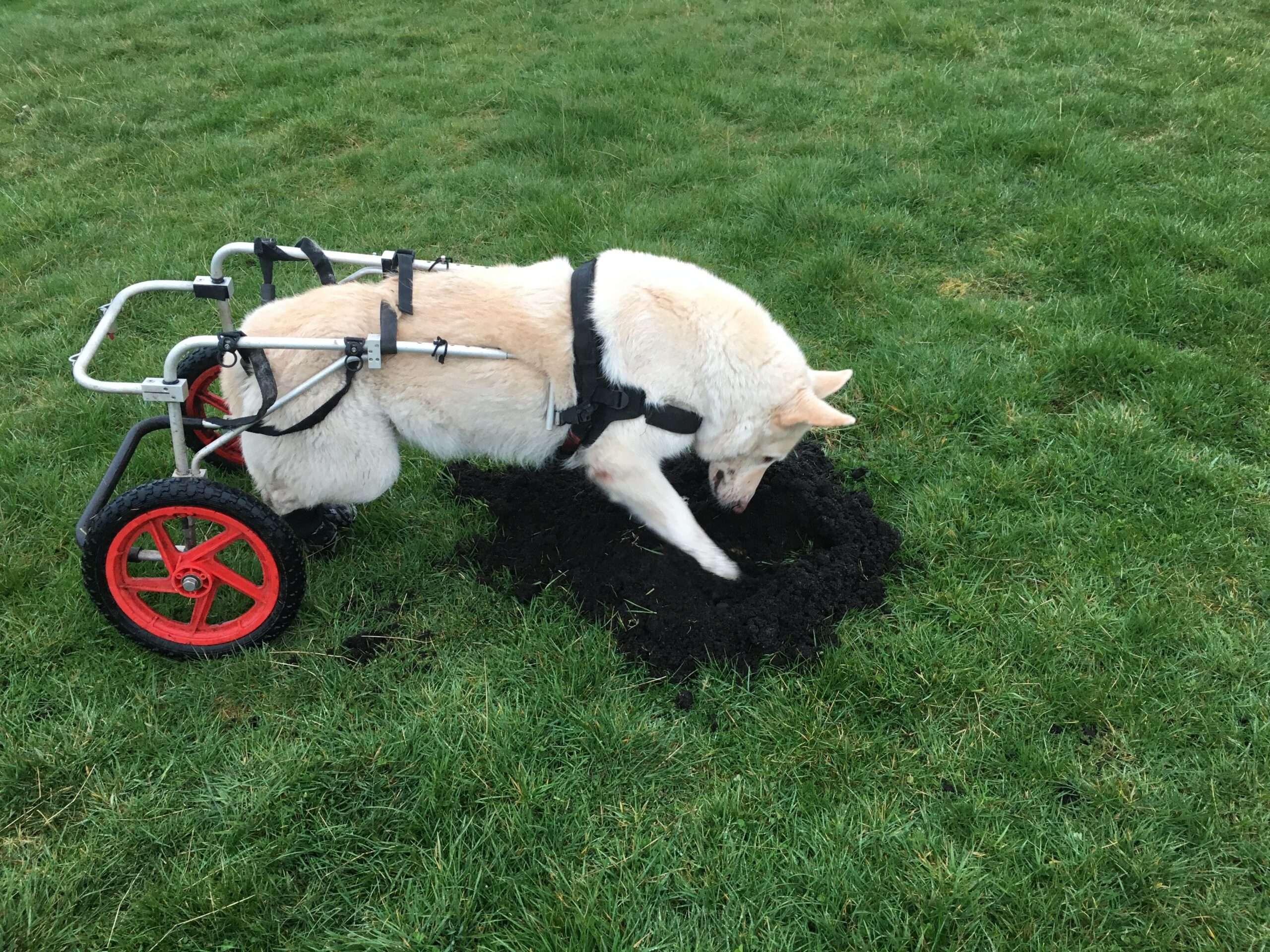
Daisy still able to dig up molehills!
If you are facing this situation and you are undecided, let’s consider some of the pros and cons of taking that step.
Wheels can be a viable option. They give your dog (or cat) back the freedom that they once had to run free, chase their ball, or just potter around sniffing if that’s their thing.
With the correct introduction and encouragement, a dog wheelchair can enhance your pet’s life by giving them back the independence of movement. They can still pee and poop whilst in their chair too.
A dog wheelchair can also give pets a huge mental boost, particularly if they have become frustrated or depressed when they cannot move around as freely as they once could. It is incredible how quickly they adapt to the wheels.
On the negative side, it is true that some pets simply don’t take to dog wheelchairs. We believe that with a little work, and right incentive, most hurdles can be overcome, but of course, each dog is different.
For larger pets, wheelchairs can be less practical for indoor use – the larger the wheelchair, the wider the wheelbase becomes, so doorways and furniture (and your feet!) are difficult to navigate around.
You should also consider how you will lift your pet in and out of their wheelchair. Technique is everything, but even so, your dog may be heavy and need to be manoeuvred into place. Additional accessories may be needed to help you (such as harness that can be fitted onto your dog first, before clipping straight into the wheelchair frame).
Think about the terrain on which the dog wheelchair will be used. Long grass or large obstacles will make it more difficult for your pet to move around, and you may need to choose a less hazardous route when out and about.
Do your research
Before you make your decision, think about what you want your dog’s wheelchair to do for them. Do some research, and talk to other owners who have taken the plunge. They will be the first to tell you the highs and the lows of wheelchair life, and talking about their experiences can really help you.
When one of our GSDs, Blitz, was diagnosed with DM, dog wheelchairs were not a very accessible option. He was happy when he was around us, but he would have loved to be mobile again.
By the time Daisy was diagnosed 8 years later, dog wheelchairs were becoming more prevalent. We were sceptical of them, and unsure whether Daisy would be willing, but we are so glad we gave one a try. Daisy was gifted nearly two years of happy ramblings with her wheelchairs, chasing her beloved Puller. Even when she could no longer run after it, walking around the field with it clamped firmly between her jaws was enough to put a smile on her face!
Daisy’s wheelchair journey:
Sabrina
From a happy new Walkin’ Wheels dog wheelchair user:
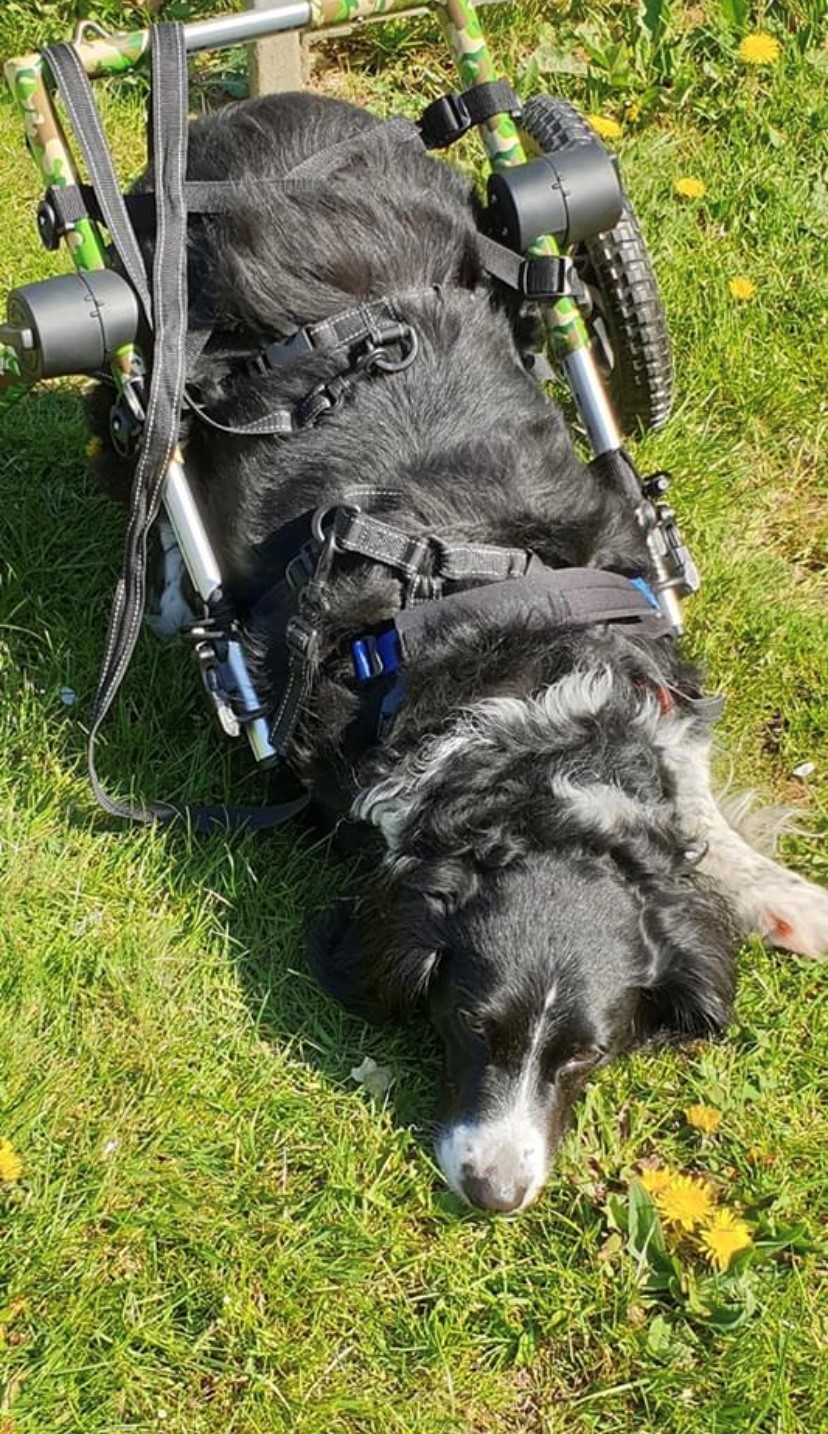
Sabrina in her new Walkin Wheels wheelchair
“It has been great to see our dog have some quality of life back. We can’t get her out every day, but when we, can she loves it.”
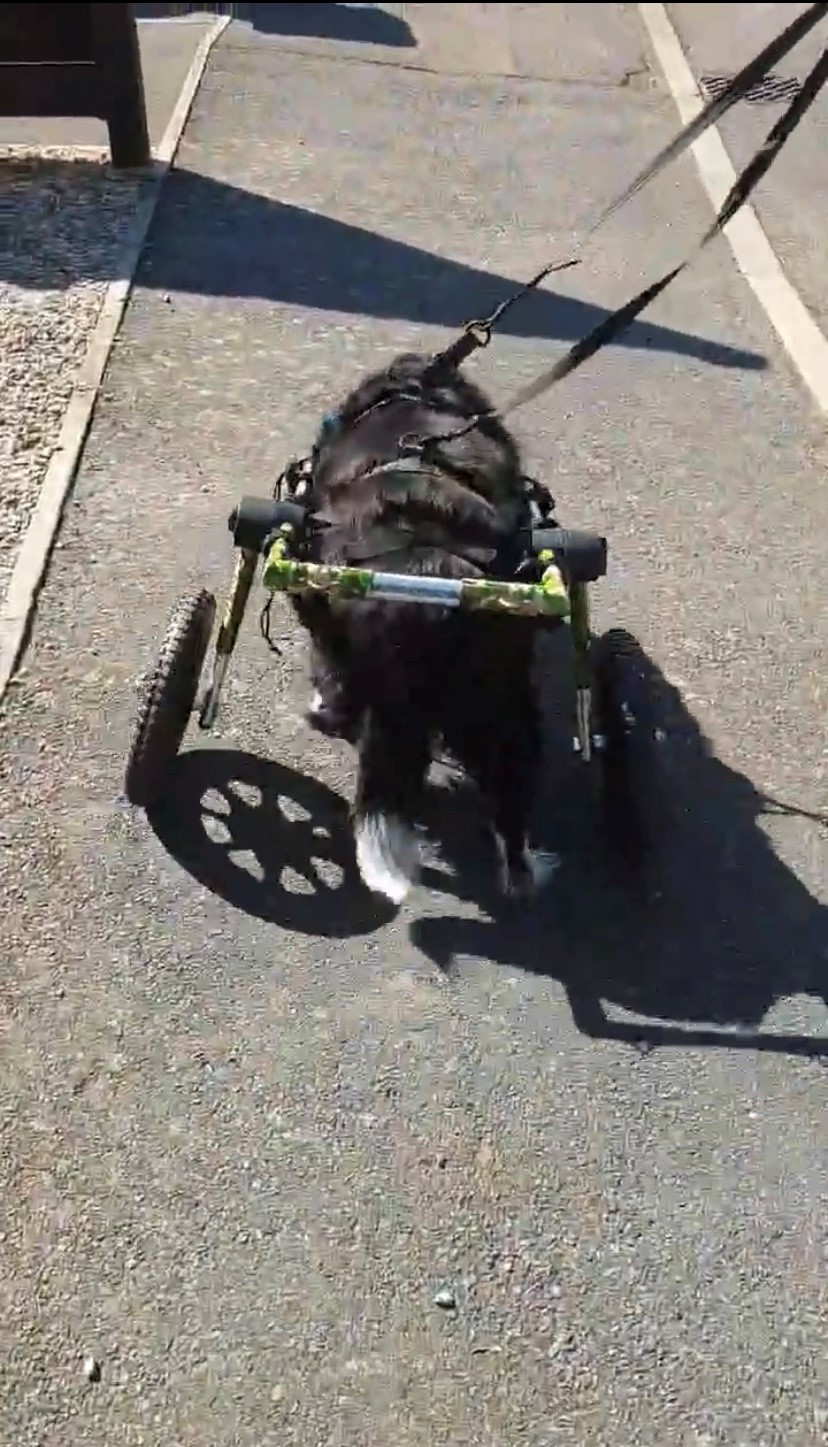
Rolling happily along!
“I was worried she wouldn’t take to it as she has always been scared of most things (she doesn’t even like squeaky toys) but as soon as we put it on her she was off”.


